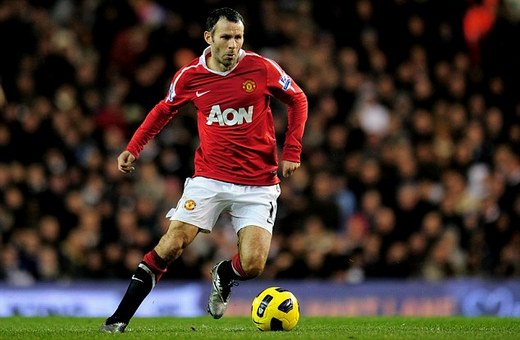News
Pace is temporary, class is permanent

Players who suffer serious injury and come back a disappointing, vague shadow of themselves are legion. When players who are effective through pace start to break down in their twenties, it's only those sensible enough to adapt who carve out a full career.
Pace and explosiveness can launch a player into a team, but their gifts can blight in the long run. If you're a very good player, and you happen to have pace, then you can become a great. If you're a quick player and nothing more than that, then when your spark goes and you can't change, you can jog on.
There are countless examples of serious injuries compelling a pacy player to become another kind of footballer. What's odd is that this entirely predictable decline is not managed as it is in cricket, where sheer pace is refocused to guile as a matter of course, overseen by coaches who experienced the same transition when they were cricketers. Football players do not get the same specialist guidance.
Alan Shearer lost mobility after each serious injury. It's a credit to him that he overcame so many of them to win back his primacy as a goalscorer. His anticipation and technique compensated for a fading spark. He still, though, became a striker who covered less ground, less explosively. As a result he eventually found it impossible to lose his man, but his skill was that he still found it even harder to miss.
Ronaldo (the first) was the most exciting player of his generation, and scored at a staggering rate for Cruzeiro, PSV, Barcelona, Inter and Real Madrid. His speed and force afforded him thousands of chances. His body became so damaged, though, that the last of his career was about his knees and gut, not his goals.
On top of countless injuries, Paul Gascoigne battled willingly on the pitch against the damage he had done to himself off it. Alcohol and his black dog curtailed him as much as ligament damage. His football brain stayed consistently sharp, and until his early thirties he just about coped with physical limitations, using the crutch of his genius. Just imagine, though, what Gascoigne could have done without the strains he put upon his body, and the serious injuries he suffered. The vintage Gazza that earned moves to Tottenham and Lazio went past players as effortlessly as he confounded them.
There are players who never relied on their pace, and these players deserve the utmost respect. Zinedine Zidane wasn't slow at the start of career, but always clearly better than his pace would suggest. John Sheridan was a flair player without speed before the Premier League became a global product. Andres Iniesta is no slouch, but his genius resides in his head rather than his muscles.
As impressive are the players who start a career off the back of blistering pace, and remain at the top until they retire. This might also be the hardest career to build - any player can be born with pace, but few become vital to a team in their thirties.
Ryan Giggs is celebrated for maintaining a career at Manchester United, praised for transforming himself from greyhound in the '90s to grey and vital in the next decade. A visceral player before the turn of the millennium, he then became more intelligent, effective and consistent.
Unlike other United players shipped out ruthlessly after injury, Giggs' professionalism secured him the opportunity to make a transition. Jaap Stam was moved on not just after injury but after he wrote, in his autobiography, that Sir Alex Ferguson had tapped him up at PSV. Gabriel Heinze moved when he wouldn't try to displace Patrice Evra, not only because of cruciate damage. Giggs alone had the mental strength and humility to be relevant across three decades.
Another United veteran demonstrates the dangers of hubris. Michael Owen excited Europe even more than Wayne Rooney when in 2001 he won the European Player of The Year award. A man not shy of self-confidence, he has used a brochure to get himself a transfer, and was once so disrespectful to a 13-year-old 'keeper on his TV show that Neville Southall had to step in. He was so confident in his ability it took him too long to recognise the need to adapt. By then, he was unable to command a first-team spot at a sinking Newcastle. Now he's a squad member at Old Trafford, physically kaput, and mentally shot.
Darren Huckerby perhaps fell the furthest, with potential recognised by an England B Cap. All he had, though, was speed. The troubles of Owen and Huckerby only serve to highlight the remarkable achievements of Giggs. Huckerby's pace meant his career peaked in the Champions League, but his talent meant it finished at San Jose. At his peak, the criticism that defined him was that he was 'a rudderless speedboat', the perfect description for players who could not transcend their pace, like Milan Baros, Dennis Rommedahl and Djibril Cisse. And maybe even Theo Walcott.
Walcott has a rare opportunity to squander. For his club and country, the right wing is his if he can make the best use of his pace. If he becomes a footballer, and not an athlete, it could be for a decade and not just a few seasons. Without what Chris Waddle called a "football brain", his chances could disappear with his speed. Luckily, he has Arsene Wenger to learn from, but he's not improving at a rate to guarantee enduring success.
Dropped from a charmless and blunted World Cup squad, due to his absent-minded decision-making in pre-tournament friendlies, his penetration is hamstrung by intellectual dullness. If he doesn't fulfil his potential at Arsenal soon, he'll find himself playing elsewhere. Should this be the case, and it's entirely plausible, then he would be yet another player not able to make the most of pace's mixed blessing.


